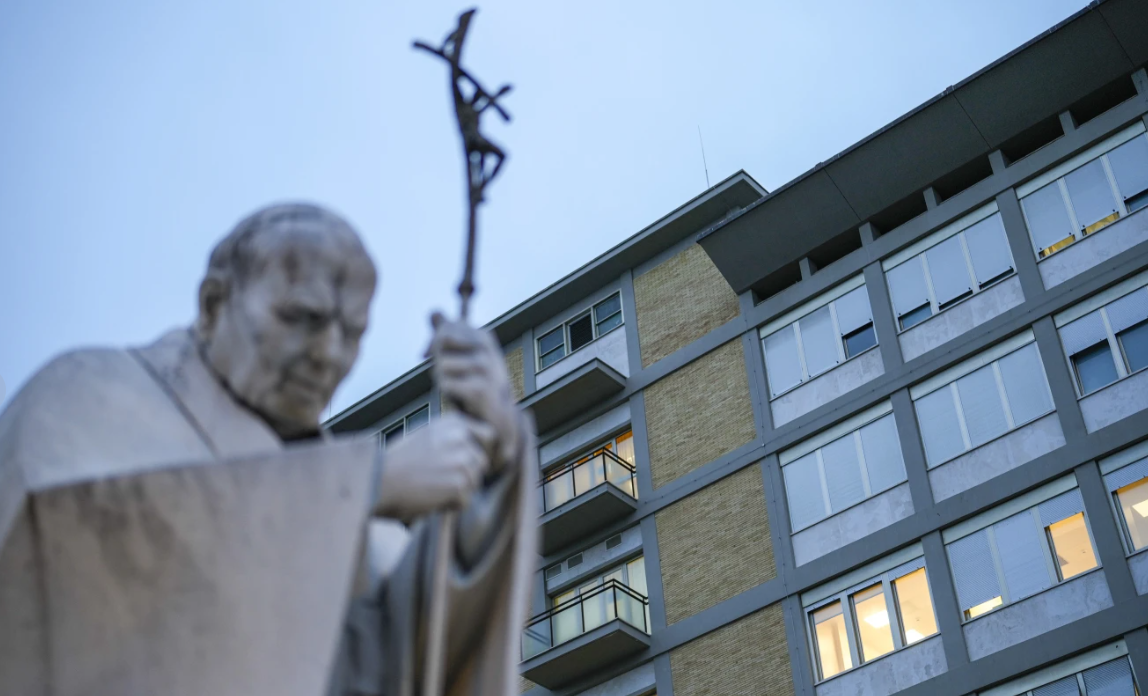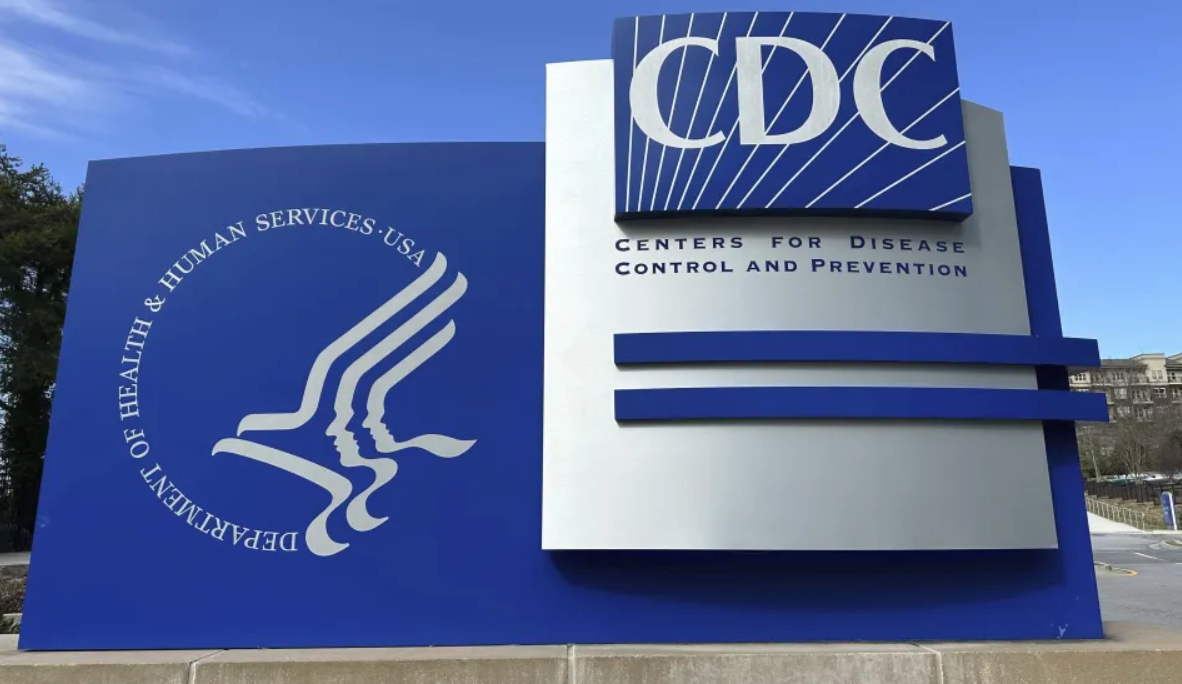Pope Francis had a peaceful first night in the hospital after being admitted for a respiratory tract infection, the Vatican reported. The 88-year-old pope was up on Saturday morning, eating breakfast and reading newspapers, while continuing his medication.
Francis was taken to Rome’s Gemelli hospital on Friday after his week-long battle with bronchitis worsened. This marks his fourth hospitalization since becoming pope in 2013, sparking concerns about his health.
Initial tests indicated a respiratory tract infection and a mild fever. As a result, the Vatican canceled his public audiences at least through Monday. Francis, who is prone to respiratory issues during the winter, was diagnosed with bronchitis on February 6. Despite his illness, he continued his daily audiences from his Vatican hotel suite. He had presided over an outdoor Mass the previous weekend and attended his general audience on Wednesday, but he had been delegating his speeches to an aide due to difficulty breathing.
As a young man, Pope Francis had part of one lung removed and has faced various other health issues throughout his life.
In 2021, Pope Francis underwent surgery to have 33 centimeters (13 inches) of his large intestine removed due to a narrowing of the colon. He also had additional abdominal surgery in 2023 to remove scar tissue from his intestines and repair a hernia. Due to his health challenges, he now uses a wheelchair, walker, or cane to get around his apartment, and has recently fallen twice, injuring his arm and chin.
The pope is receiving treatment at Rome’s Gemelli hospital, where he has a private suite on the 10th floor. During a hospitalization in 2023, Francis revealed he had been diagnosed with “an acute and strong pneumonia” in the lower part of his lungs.
Bronchitis can sometimes develop into pneumonia, which is a more severe infection affecting the lungs’ air sacs. Doctors may detect pneumonia by listening for unusual sounds in the lungs, such as crackling or whistling, but further tests, including a chest X-ray and pulse oximetry, are often necessary. Treatment for pneumonia varies based on severity and may include oxygen therapy, intravenous fluids, and addressing the underlying cause of the infection.














